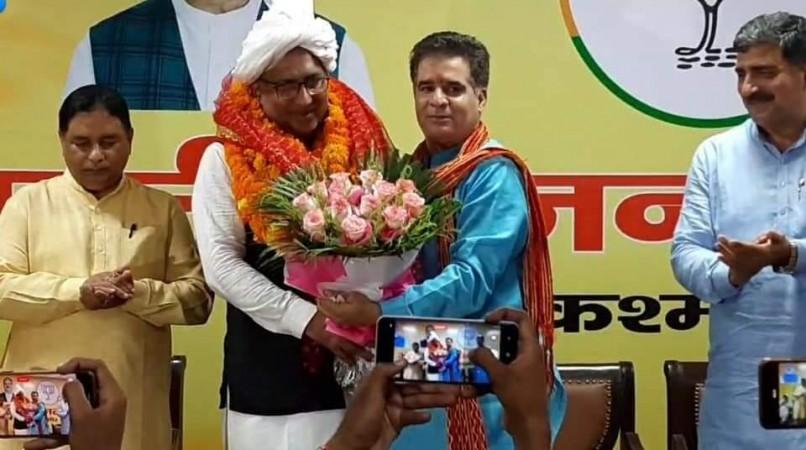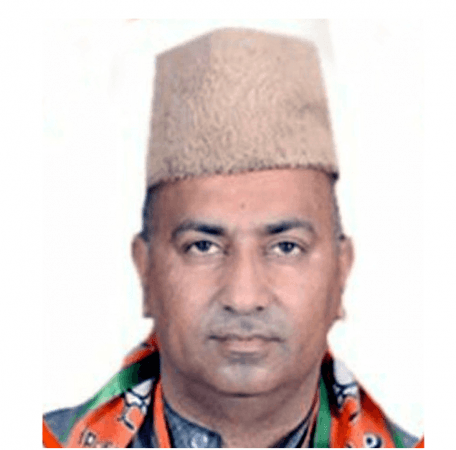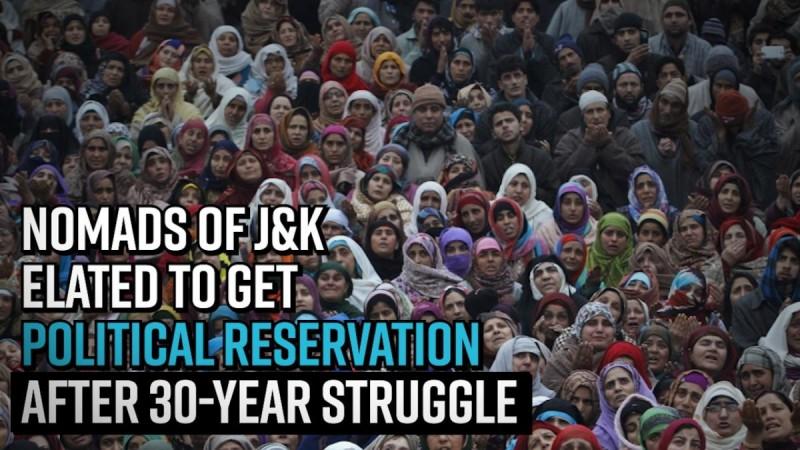By nominating a young Gujjar leader Ghulam Ali Khatana to the Rajya Sabha, the BJP has tried to reach out to "Pasmanda Muslims" in the country and to win the trust of the Gujjar-Bakerwal, the third largest ethnic group of Jammu and Kashmir.
After setting a target of winning 50-plus seats in the maiden assembly elections in the Union Territory of J&K, the BJP is assiduously trying to make inroads among different sections of the society.
Ghulam Ali Khatana is not a big political face in Jammu and Kashmir but he is a dedicated worker of the BJP since 2008. After completing his engineering in 2009, Ghulam Ali joined BJP and was silently shouldering all responsibilities given to him by the party from time to time without any publicity or media hype.

Instead of selecting some big political faces who have recently joined the party after 2014, BJP high command has nominated Ghulam Ali to the Rajya Sabha to give representation to "Pasmanda Muslims" and Gujjar-Bakerwal of J&K.
"My nomination to the Rajya Sabha was only possible due to the visionary and pro-weaker sections approach of our Prime Minister Narendra Modi", Khatana told International Bussiness Times.

He said that his nomination to the Rajya Sabha will not only empower but also give a very positive message to the weaker and marginalized sections of society.
Attempt to woo Scheduled Tribes before Assembly, Lok Sabha polls
By nominating Khatana to the Upper House of the Parliament, the BJP has played a masterstroke to woo Gujjars and Bakerwals before assembly polls.
On the one hand, BJP has promised to grant Scheduled Tribe (STs) status to Pahari-speaking people while on the other hand, the party has played another calculated move by nominating a Gujjar to the Rajya Sabha.
This move of the BJP has evoked a positive reaction among the nomadic population because, after Choudhary Mohmmad Aslam, Engineer Khatana is the second Gujjar leader from J&K who will represent J&K in the Rajya Sabha. Secondly, BJP has given another message to the Gujjars and Bakerwals party that would give them equal opportunity to every section of the society.
Political reservation already granted to STs
After granting political reservations to the Scheduled Tribes (STs) BJP has taken this step to further strengthen its base among Gujjars and Bakerwals.

The Delimitation Commission in its report has reserved nine seats in the Legislative Assembly for Scheduled Tribes and seven for Scheduled Castes.
While Scheduled Castes are already getting political reservations, the STs will get nine reserved seats for the first time in the history of Jammu and Kashmir. In the coming assembly polls, nine seats would be reserved for STs in J&K.
Unlike other parts of the country, there was no political reservation to the STs in the legislative assembly or Lok Sabha seats of the erstwhile state of Jammu and Kashmir. Political reservation to STs would be granted after the abrogation of Article 370.
Although all political parties claimed to minimize the woes of the ST communities, political reservation was not granted to these communities before the abrogation of Article 370.
- J&K is the only state in northwest India having a share of nearly 15 percent population of STs.
- As per the 2011 census, the total population of STs in J&K counted 14.9 lakh among them 13.2 lakh are Muslim, 1 lakh are Buddhist and about 67,000 Hindu.
- After decades-long struggle tribes of the erstwhile state of J&K were granted ST status in the year 1991 when the state was under the Governor's rule. In J&K, four communities, namely Gujjar, Bakarwal, Gaddi, and Sippi were notified as the Scheduled Tribes vide the Constitution (Scheduled Tribes) Order (Amendment) Act, 1991.
- Since 1991, STs were agitating to get a political reservation in J&K like in other parts of the country. It was only after the abrogation of Article 370, that their demand was fulfilled.









